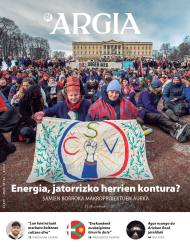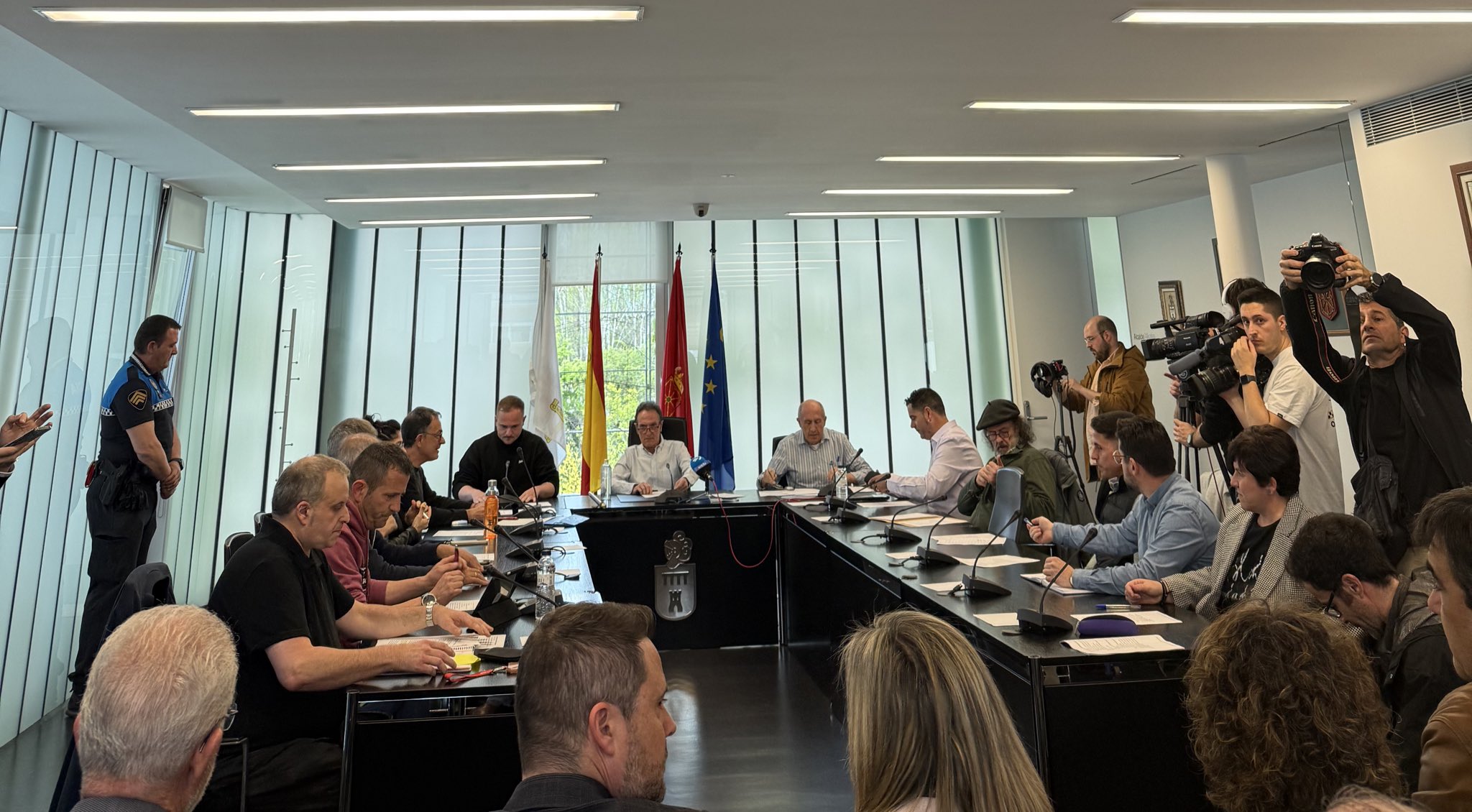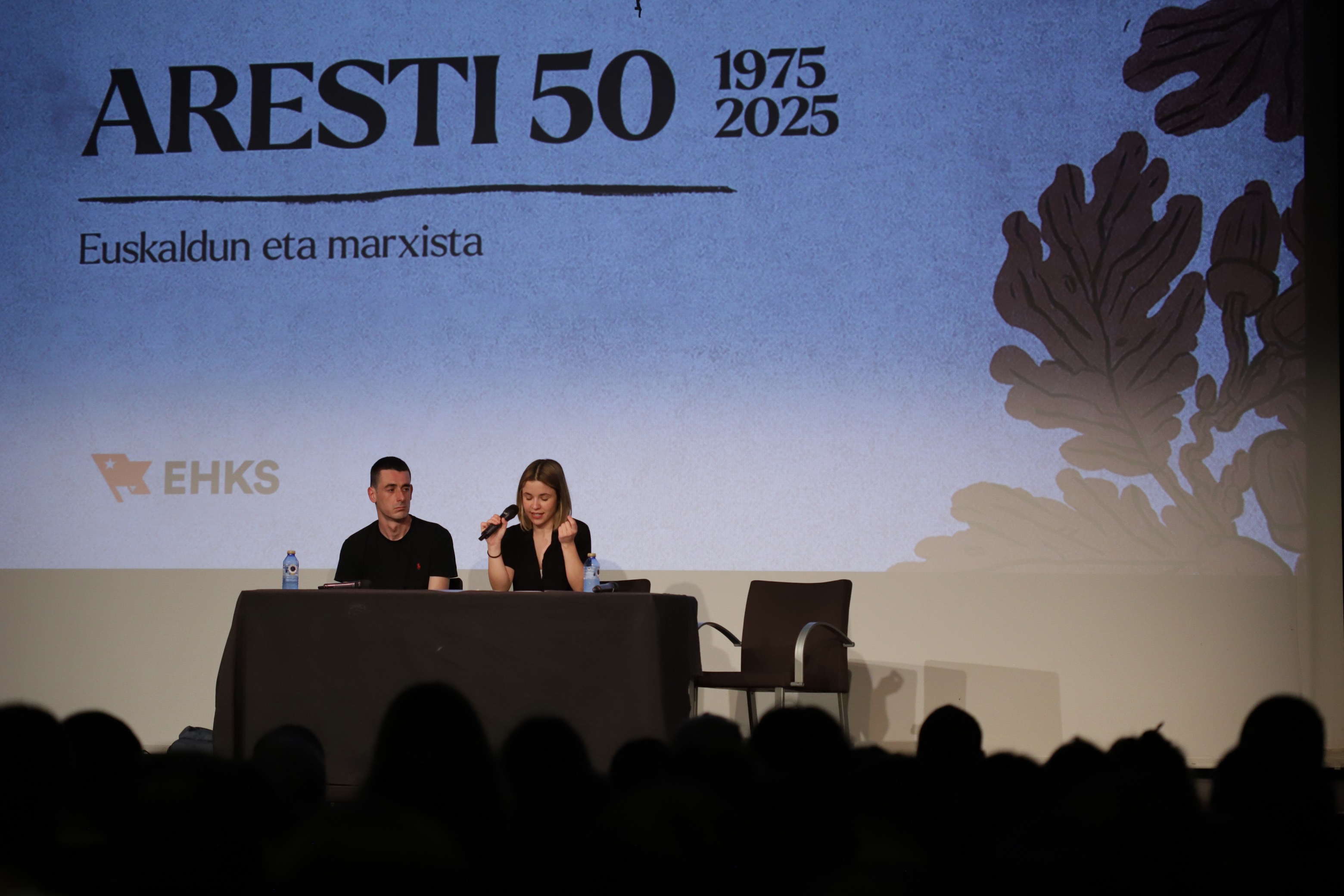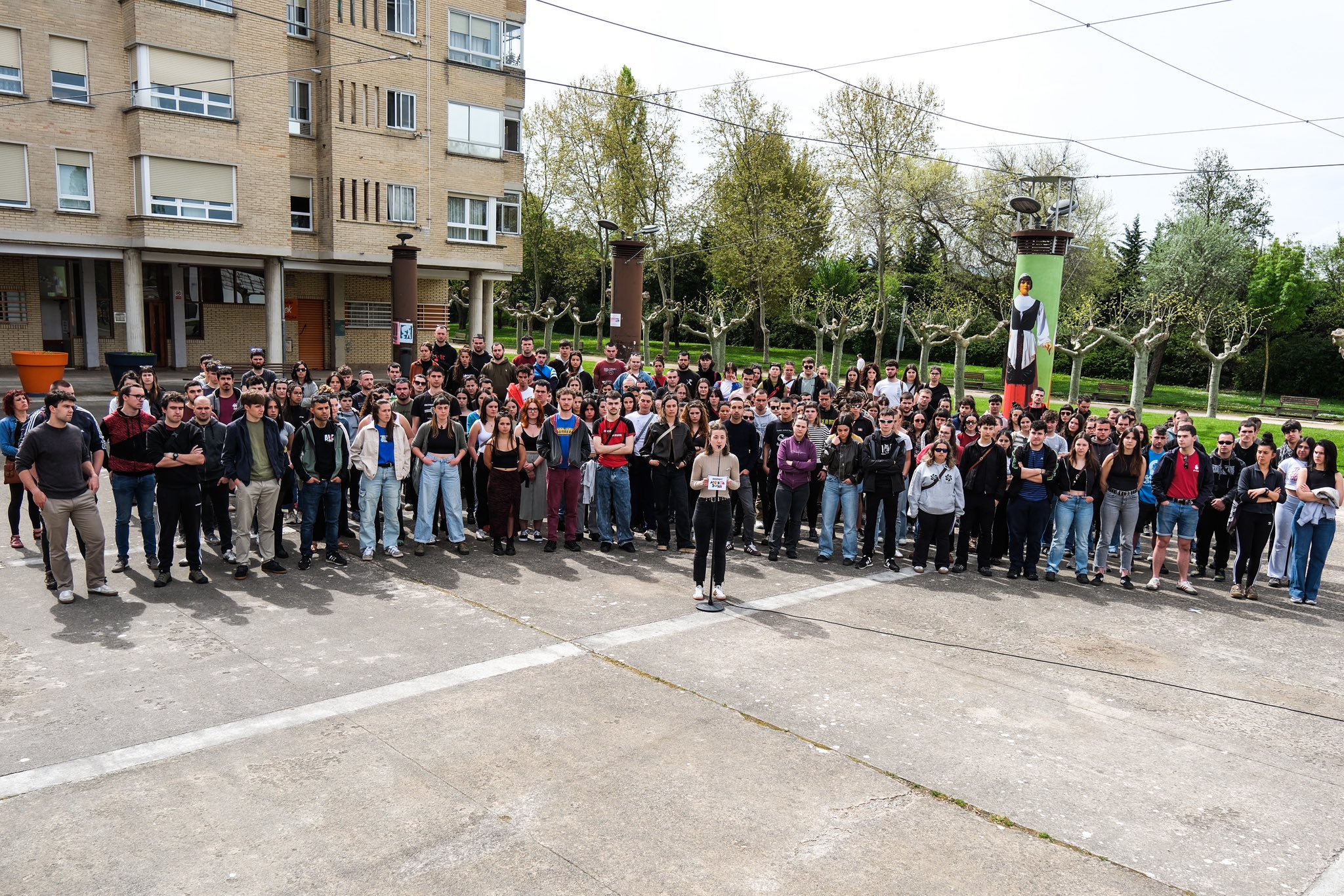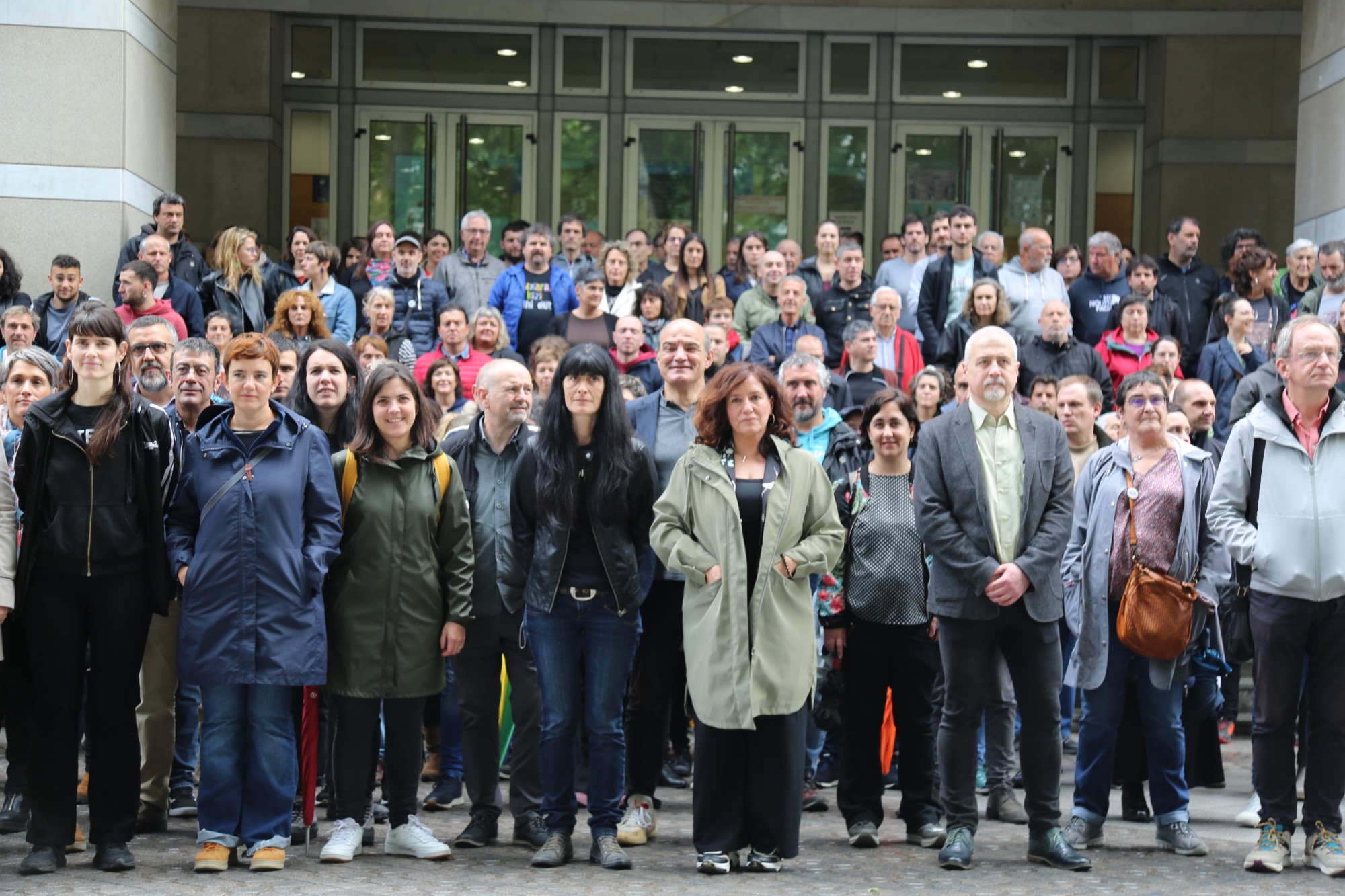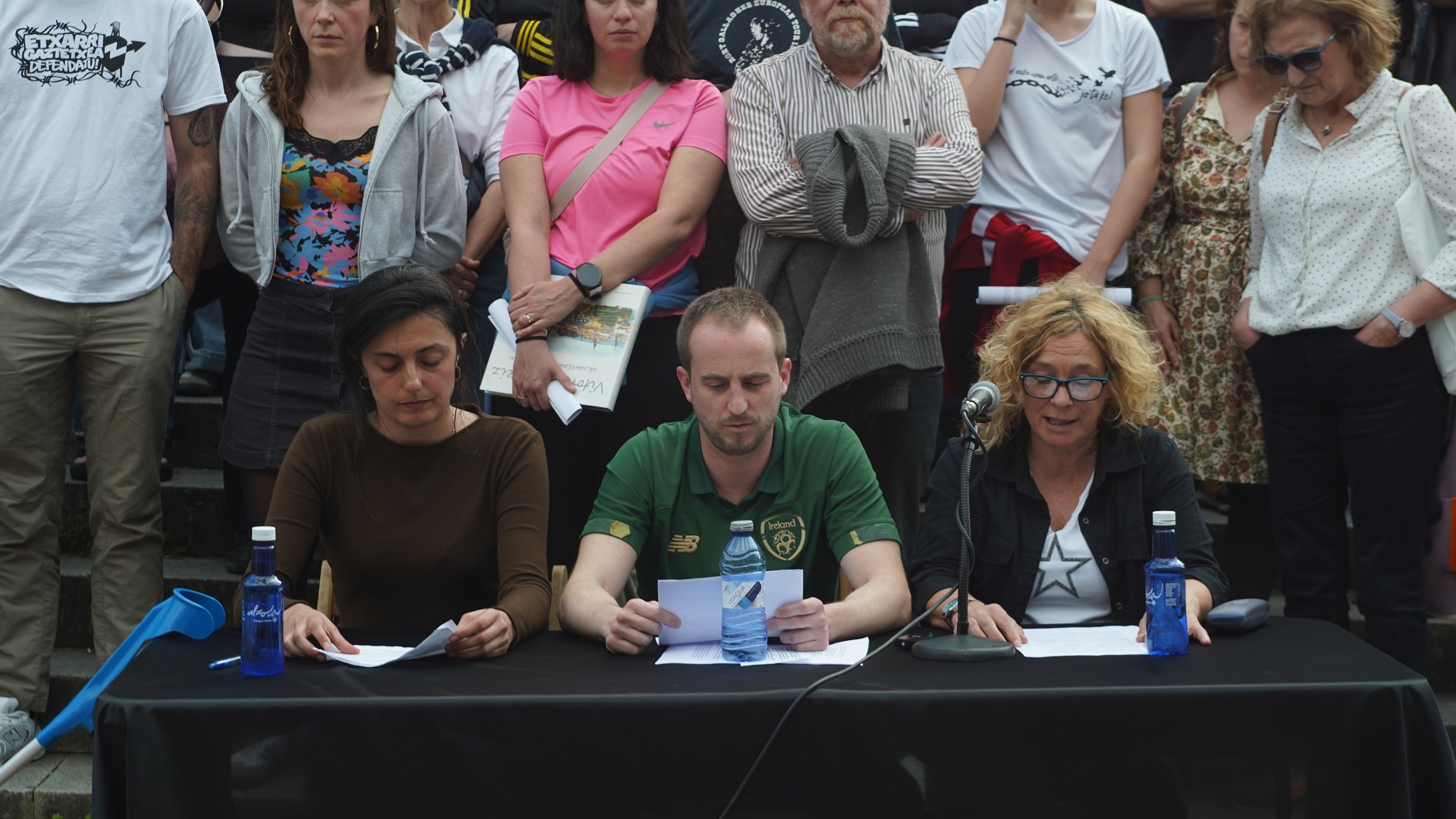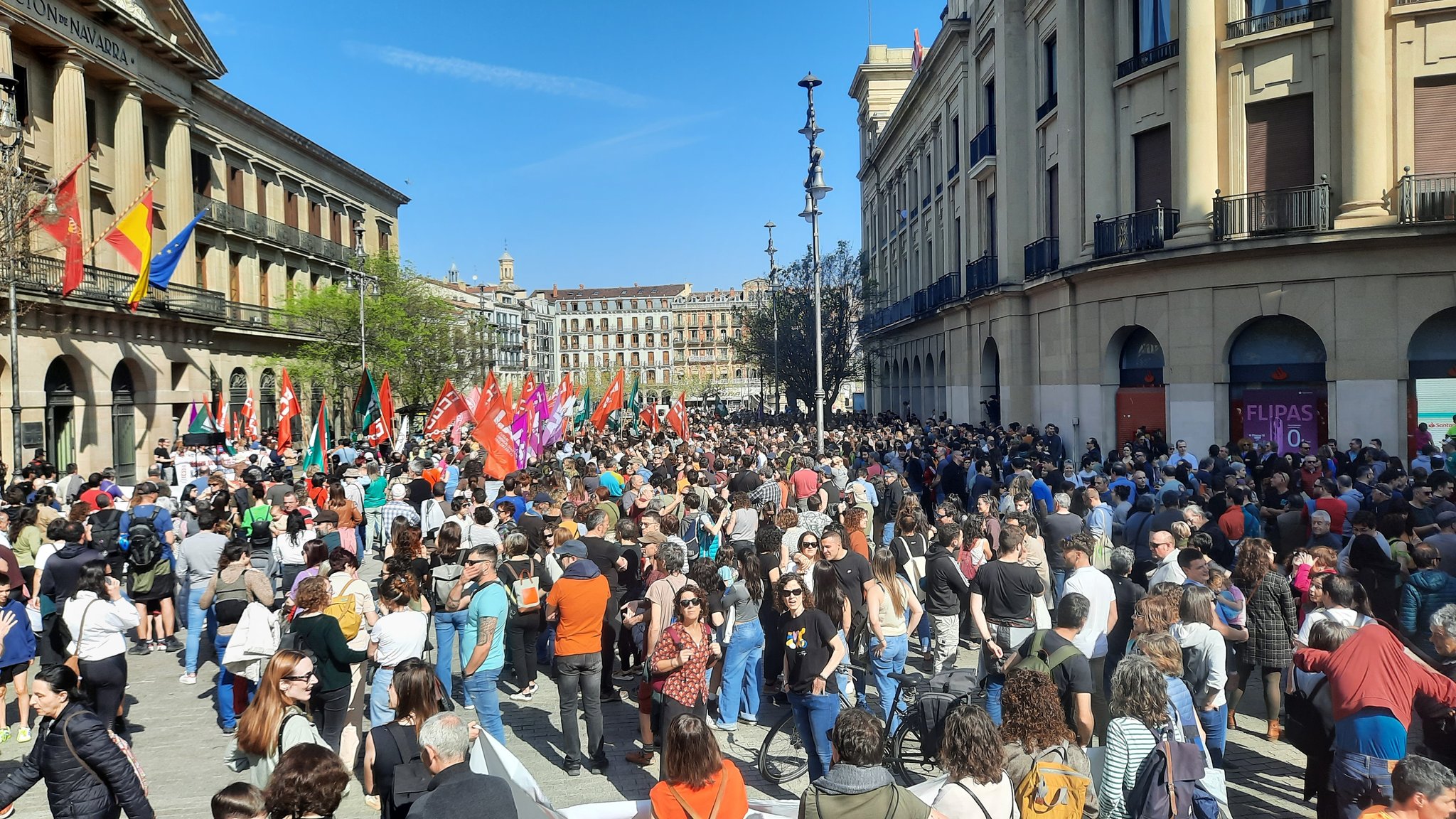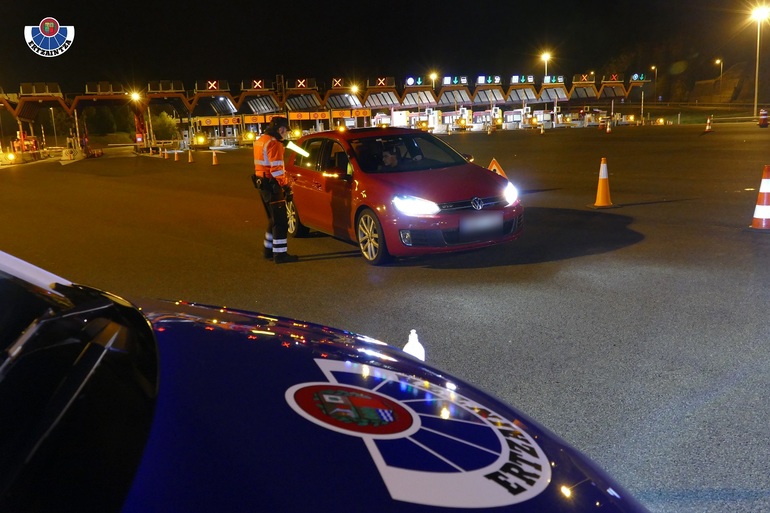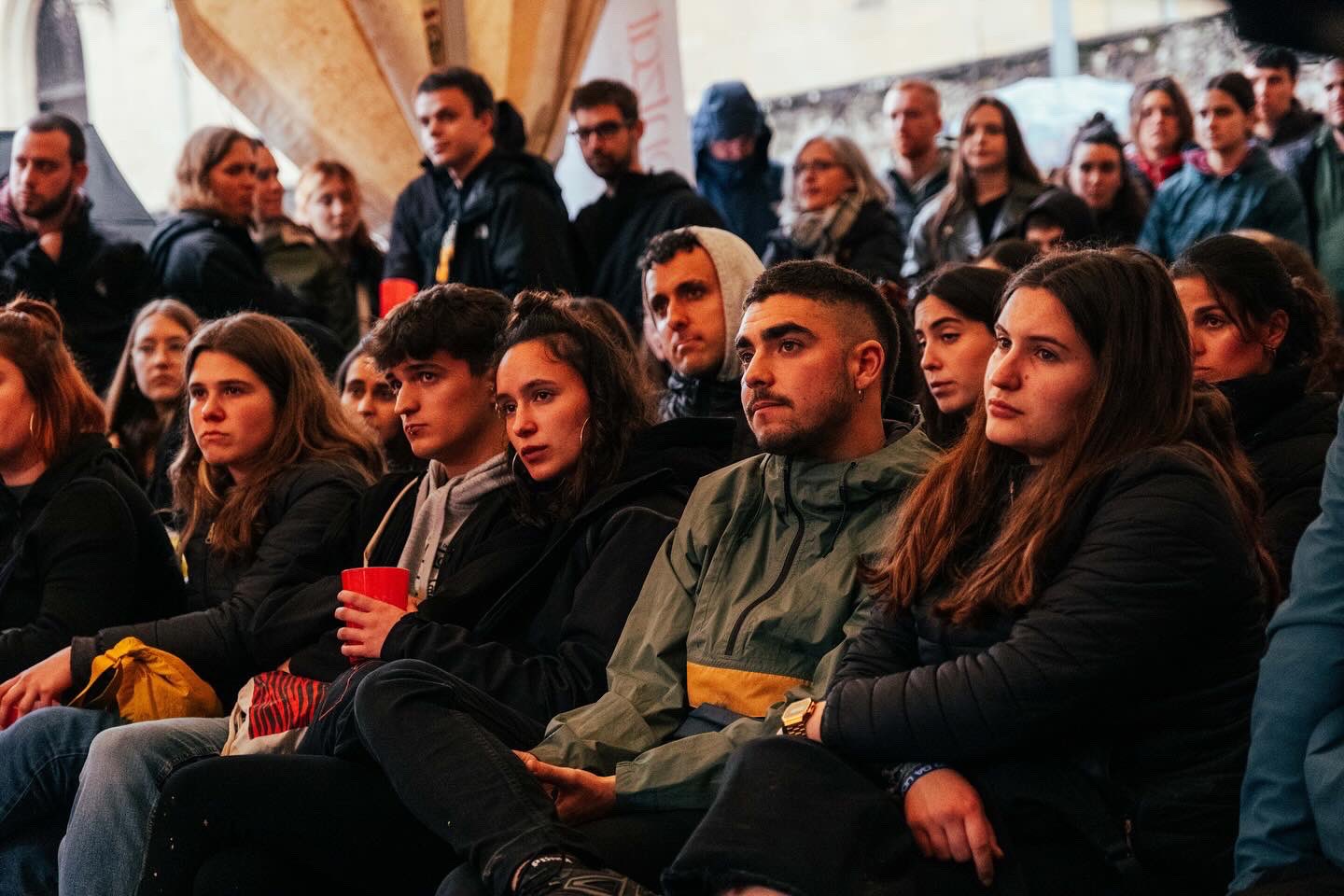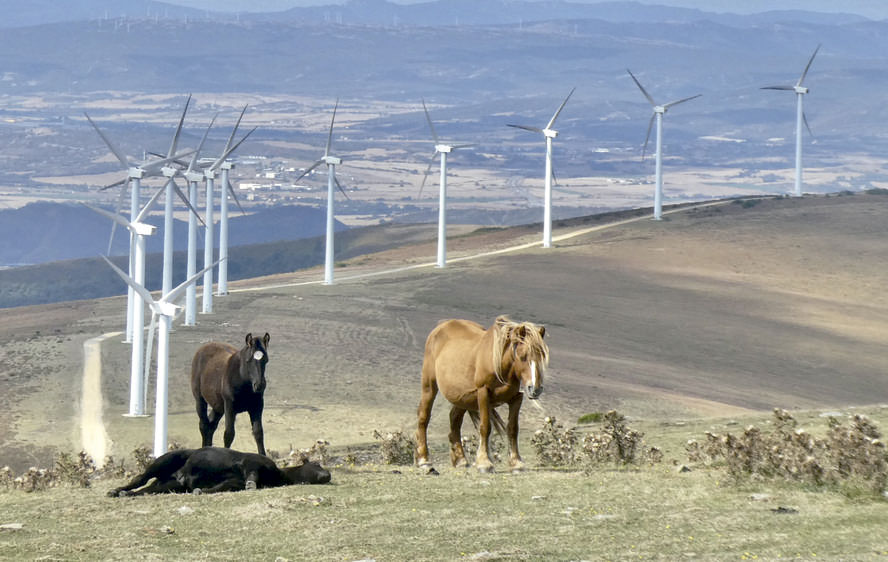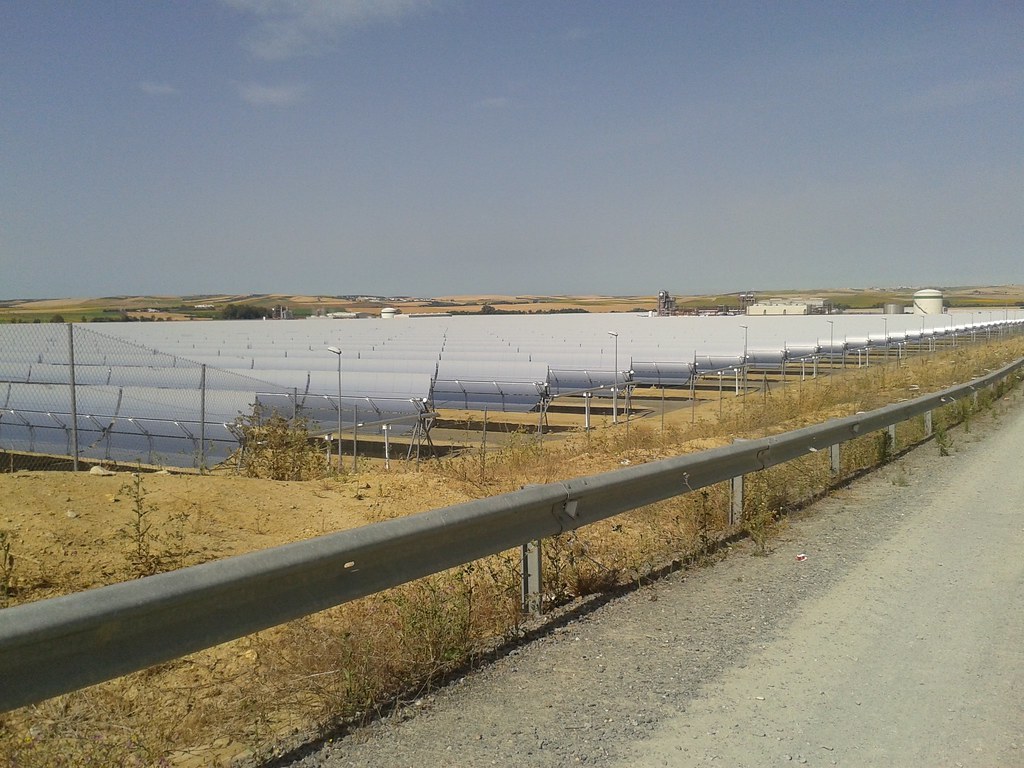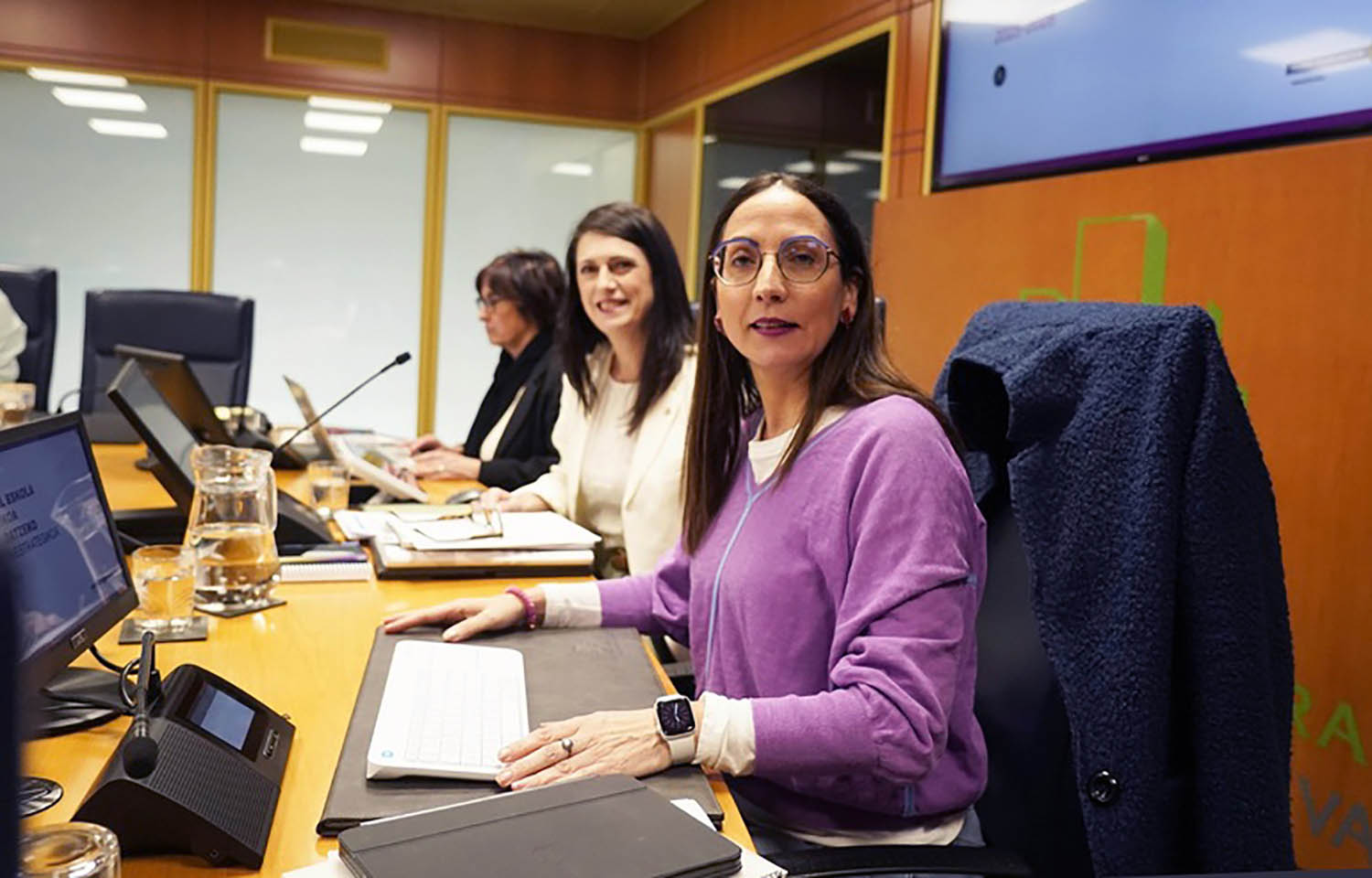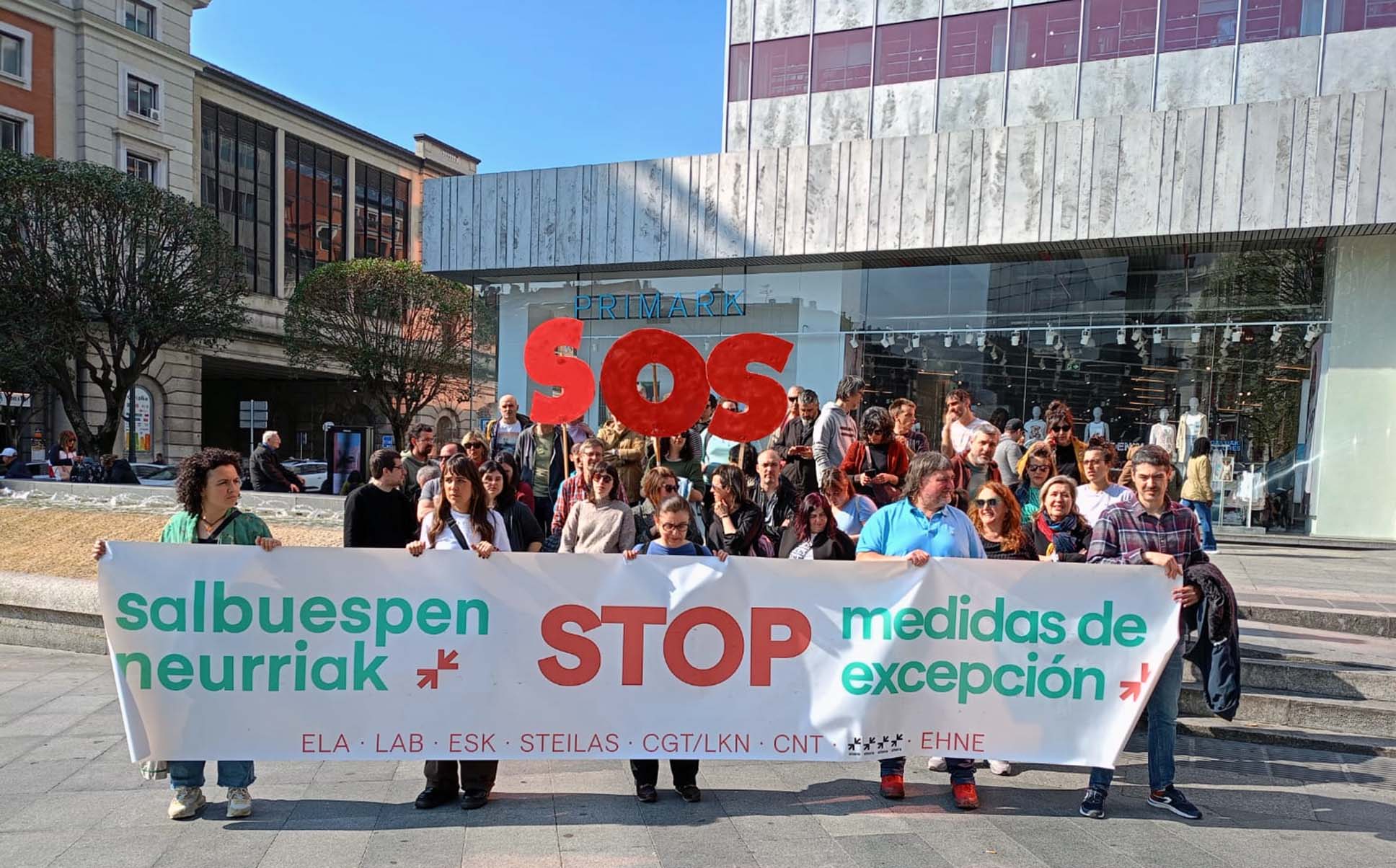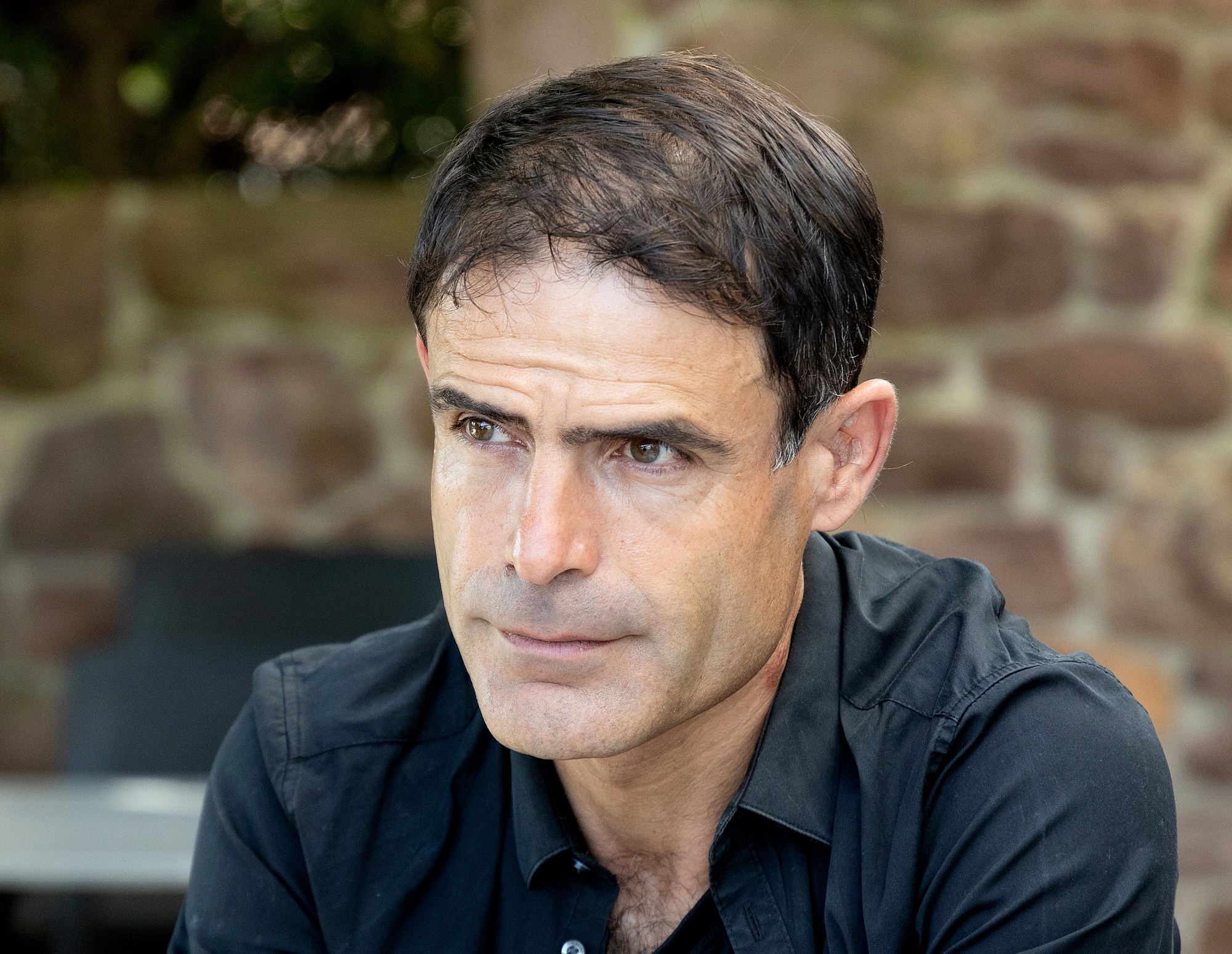"PNV and EH Bildu are increasingly looking at Madrid"
- Edurne Alegria, Luken Etxabe and Josu Albero are members of the National Association. The association that was created five years ago, in which nearly 30 members work, is concerned about the process of denationalization that you see in the Basque Country. In January two seminars were held in Azpeitia and Urruña, in which people from beyond the partnership met to reflect on the current situation of the Basque nation.

Could you explain to us what Nationalism is? JOSU ALBERO: We are independentists and we want the Basque Republic. That is why we believe it is essential to broaden the Basque national awareness, because otherwise we will hardly succeed in making the Basque Country sovereign. Our objective is the
integral sovereignty of the Basque Country, that is, political sovereignty yes, but also linguistic, cultural and identity. We always say that the Irish model is not ours, there they achieved the State, but the nation galdu.Gure appears in their statutes four main objectives: one, to expand the Basque national consciousness; two, to incorporate the discourse in favor of the Basque Country and the Basque culture in the Abertzale world; three, to make pedagogy in favor of the Basque Republic; and four, to establish relations and promote mutual knowledge with other nations without the European state.
Let us turn to the issue of Basque identity. What is Basque today? What Basque? I have also read “Baskoa” in some of his writings…
EDURNE ALEGRIA: There may be many definitions, but for us it is Euskaldun who speaks Basque and tries to live in that language, whatever its origin or the color of its skin. It is Basque who is considered a member of this country. Therefore, the Basque can be of two kinds, the one who knows Euskera and the one who does not know, the latter would be the base. And there would also be those who live here, but those who consider themselves Spanish, or Nicaraguan, or elsewhere. A few decades ago there was talk of “It is Basque who lives and works here”. This definition no longer serves us. For example, a civil guard working here cannot be considered Basque.
Is the Basque then nationalist? J. ALBERO.
No. To be Basque, at least the feeling of belonging to this country is necessary. Feeling exclusive or shared with another feeling of belonging. And we relate it to the Basque, who speaks Basque and tries to live in Basque. Basque knowledge is not enough. I know English, but I'm not English.
Why do they see Basque nationalism in crisis?
J. ALBERO. The very concept of nationalism is in crisis. Not long ago we heard a leader from the Abertzale left saying “I am an independentist, but I am not a nationalist.” [Arnaldo] Otegi himself today speaks of the independence left, not the Abertzale left. There is a tendency to reject the word abertzale.
E. JOY. In Iparralde – I live there – it is the other way round, there you hear more and more the word abertzale and it is a label. By this I do not mean that all those under that seal are nationalists, non-nationalist ecologists are on the list of nationalists in the elections, but, well, they are under that mark. That is not the case in the South. Nationalism and the Basque nation are becoming
more and more abstract. There is talk of the Basque Country, the Basque State and the Basque Republic, but what are they? In this liquid society, they are becoming increasingly blurred and there is time to redefine what they are. We are increasingly entering the state framework and perhaps forgetting that we are an oppressed nation.
J. ALBERO. We have no complexes to say that we are nationalists, even nationalists. Because ours is a subordinate nation and therefore our language, our culture and our collective identity are threatened. Of course, our nationalism has nothing to do with the nationalism of the states that dominate us. Its name is actually another: imperialism. It is essential to distinguish between nationalism and imperialism, something that Ulises Moulines does very well in his magnificent Nationalist Manifesto. The fact is that the Spaniards and the French have repeated to us so many times that nationalisms are malignant, obviously ours, not theirs, and that many people here have believed.
.jpg)
"The activism of the Basque Country has been accentuated notably by the conquest of Basque cultural activity by public
institutions" JOSU ALBERO
In
Euskal Herria, we have experienced a 60-year violent conflict. Could there have been further demobilization?
E. JOY. Fatigue can be a cause of it, yes. France and Spain do a great job of assimilating ourselves, and we are falling very easily into that process.
L. ETXABE. Yes, in this conflict some victors and other losers emerged, but the political parties we voted on do not strive for national rebirth either. Instead, we are increasingly looking at Madrid and Paris. We used to say that “Euskera is our only free territory”, but today they are also colonizing it. In your letter of the website in which the two days of January are announced, the strange effects on Basque thought are mentioned. What do they talk about?
J. ALBERO. It's a conclusion that came out of our seminar. The Basque Country currently has two great challenges: one, to avoid our national assimilation and the other, to achieve our sovereignty. In order to cope with assimilation we have to develop from the Basque perspective our own Basque thought, and there are important intellectual references, such as Txillardegi or Joxe Azurmendi. This autonomous and Basque Basque thought focuses on the framework here.
They criticise the nationalist parties for their behaviour towards Madrid. What relationship is needed with state agents on the path of the Basque State?
L. ETXABE. Independence, self-determination, culture and language, for example, have become symbolic slogans. The achievement of the Basque Republic requires an independent process, based on Basque cultural activity and internationalization. The main criticism we make of the nationalist parties is that they speak of an abstract Basque nation, they are full of their mouths, but then they do not implement policies for them. The PNV and EH Bildu are increasingly looking at Madrid, and all nationalists know that nothing can be done from Madrid and Paris about sovereignty and self-determination. Therefore, the only path is unilaterality, because we cannot be on the same table with the states; it has been seen with Catalonia and is seeing it with Scotland.
E. JOY. And so the nationalist parties legitimise both states. Going to Madrid and Paris, and being treated there, the states recognize them.
Unilaterality and, therefore, confrontation entails?
L. ETXABE. Democratic confrontation is essential. Society does not want confrontation, but politics is that, to see who manages to appropriate ideas. There is talk of fear of polarization, but in processes of decolonization or sovereignty this is absolutely normal.
What policies do you think nationalist parties should implement?
L. ETXABE. For the moment, by doing more in the areas in which we have competence. For example, the percentage of officials here is very low. In education, models A and B should be abolished and model D should be promoted. Spanish courts are also taking many decisions against the Basque Country, and in this respect the level of confrontation with the State should be higher.
J. ALBERO. We must be more courageous from a national point of view in order to launch an independent process. France and Spain will never allow us the right to self-determination. Unilaterality is the only path we have left, and we will have to seek peaceful formulas to do so, as they have done in Catalonia. At the moment we do not see the parties in that.
How do you see the situation in Euskera? J. ALBERO. We see
no popular political movement that puts the Basque people at the heart of their discourse. Why is Euskera so important to us? Because it gives us individual and collective identity.
E. JOY. We see it with concern. We observed that the use of Euskera in daily life is decreasing, and socio-linguistic surveys indicate it, especially in respiratory areas. A national strategy for the Basque country is lacking. We have been saying for some time that the Basque institutions and industry have to set up language planning, but that is not being done. Instead, bilingualism has been praised and Euskera has been chosen in the language market, knowing that ours suffers a diglosic situation. There has been and is a will to eliminate the cultural and identity characteristics of the Basque country.
In addition, the activism of the Basque country has been accentuated notably by the persuasion of public institutions to Basque cultural activity. People have believed that “it is a good situation”, “we have made progress”, etc. They have been launched from the institutions, and that means demobilization. We believe that to revive activism we need linguistic pressure groups.
.jpg)
"It is Basque who is considered a member of this country"
EDURNE ALEGRIA
Why do the institutions that have seduced the Basque people say?
J. ALBERO. Because we don't see enough reaction to those who are going on. The High Court of Justice of the Basque Country has recently rejected some of the linguistic profiles of the Provincial Council of Gipuzkoa, and has complained about Basque cultural activity, but has adopted a submissive attitude. So we go to the void.
In the Basque country, they propose “linguistic territoriality”. What is that?
J. ALBERO. Establish linguistic territoriality in the most Basque places in the Basque Country, as in Belgium, Switzerland or Canada. What would this entail? That their collective linguistic rights override individual linguistic rights. In the coming weeks, however, we will be extending this proposal and we wish to collect the contributions of the Basque agents.
For some of the young people organized in the Basque Country, internationalization does not seem to be one of their most important concerns. Here we have, for example, the GKS. How did you experience it?
L. ETXABE. I am very concerned about that. Young people live with concern ecological, socio-economic, feminism, but not nationality. This is the result of many factors, including the political and media agenda, so we young people are not aware that we are an oppressed nation, that we are in danger of language, culture and nation.
J. ALBERO. We must not forget that what was said at our seminar, namely that our country is in a process of slow and rapid denationalization. We are becoming increasingly Spanish and French. If they do not react, the two oppressive states will achieve their objective: our full assimilation.
Where do you see that denationalization?
J. ALBERO. Daily references. The most visible television in the South is Telecinco from Spain… But that also
20-30 years ago, with that or other media.
L. ETXABE. When I was a kid 20 years ago, the television we saw most about my environment was ETB. Today my 15-year-old brother sees Telecinco, The Island of Temptations -- From one generation to another there's been a huge change in the cultural landscape: how many cartoons there are in Basque, how many series, how many movies?
J. ALBERO. This process has two aspects: on the one hand, the one that lives in our society, we all see the main cultural references in our environment, and on the other hand, this denationalization has reached the agenda of our nationalist parties. 20 years ago, Euskera, self-determination and territoriality were at the forefront, but today they are not mentioned. In Catalonia they are mentioned every day.
You mentioned Catalonia, before democratic confrontation... can it be disappointing what happened there? J. ALBERO. The process was very well targeted until October 2017, but then they didn't know how to take it to their head.
E. JOY. It can also be an incentive. I do not believe that the fire has been extinguished there. Politicians have taken another path, but I do not believe that the people will follow. L.
ETXABE. ERC and Junts have entered a battle of hegemony, here as the PNV and EH Bildu, but the independence and achievement of the Republic of Catalonia remain
on their agenda, unlike here.
.jpg)
"Young people live with concern ecological, socio-economic, feminism, but not nationality problems"
LUKEN ETXABE
Do they have in mind to structure themselves as
a political party to influence Basque society? J. ALBERO. No, not at all. We are trying to spread the Basque national conscience, nationalism based on language. As linguistic awareness increases, Basque national sentiment will increase, and as it increases, support for independence will be strengthened.
L. ETXABE. In general, autonomous nationalism is being promoted, not independence. We have been with autonomies in the South for four decades. What has this meant from a territorial point of view?
E. JOY. Neither the Basque Country, nor Navarre, nor Iparralde, here is the Basque Country from seven territories, and that is what we have to promote. The Basque national feeling must be extended beyond the mental and physical borders, and the philosophy of the Euroregion must be brought to an end in concrete initiatives. We cannot allow the pupils and teachers of the ikastolas to tell us “tomorrow we go to San Juan de Luz, to France”. And we cannot forget that Euskera is what unites us all territories.
L. ETXABE. Abraham Lincoln said, “If you told me I have six hours to cut a big tree, I would spend the first four hours to sharpen the axe and the other two to cut the tree.” Sharpening the axe, in our case, is a national task, and cutting the tree would be separating it from Spain and France.” It is not possible to cut the tree with a challenge.
AINE Noain-Elortzibarreko talde independentea, Harana Gara eta Aldatu Elortzibar egongo dira udalaren agintean, eta azken horretako Luis Mayak hartuko du aginte makila. Martxoaren 31n iragarri zuten mozioa aurkeztuko zutela, UPNren kudeaketaren "noraeza" eta... [+]
Aberri Eguna elkarrekin ospatzeko xedez sortu zen Euskal Herria Batera plataforma. Aurten, ikusgarri bat eskainiko dute apirilaren 11n, Manex Fuchs antzerkilariaren, Lorea Agirre idazlearen eta Martxel Rodriguez dantzariaren eskutik.









